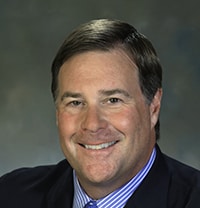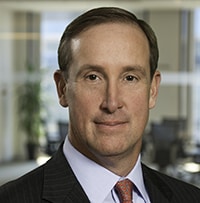Although 2016’s frothy market didn’t repeat, regional M&A advisors in the US aren’t complaining about 2017.

The US mergers and acquisitions (M&A) market remained strong through 2017, although off the record-setting pace of the previous year. Total deal value dropped 14.3 percent from 2016, to $1.3 trillion, while volume inched up by 0.4 percent, to 5,347 deals, according to law firm White & Case.
Regional middle-market providers in the US enjoyed solid activity in 2017 and are looking forward to another strong year. “We are seeing robust activity and valuations across all sectors as the economy grows and underlying company performance improves,” says Bob Snape, president of BDO Capital Advisors, which was ranked top middle-market provider in the Mid-Atlantic region.
“It’s definitely a seller’s market,” says John Hill, co-founder of Hyde Park Capital, which ranked best in the Southeast US. “There’s a lot of demand for quality companies.”
Hill and partner John McDonald bring experience with engineering and technology firms, as well as with larger investment banks, to their roles. “We saw an opportunity to provide high-end investment banking services to lower middle-market companies,” Hill says of their decision to form Hyde Park. Most clients are located in the southeastern United States, particularly Florida.
Many Drivers
One driver behind the activity is the “plethora of capital in the market,” Hill says. He notes that family-office communities are competing to buy companies, as are non-fund sponsors, many of whom are credible. “There’s a large amount of equity capital chasing deals.”
Technology is a catalyst as well. “Old-economy companies simply have to buy tech skills and platforms if they are to survive the era of digital transformation,” the White & Case report noted. For instance, Hyde Park worked on the sale of a software company to a large engineering-services company. The acquirer’s goal? “To offer more of a technology-enabled business solution,” Hill says.
Globalization also adds fuel to the investment-banking fire. “Cross-border M&A deals will remain alluring,” blogs Capital Alliance Corp. CEO Bryan Livingston. The Dallas-based firm, which earned the top spot for the Southwest US, has completed more than 200 transactions since its founding in 1976.
Some M&A drivers are industry-specific. In healthcare, it’s the promise of economies of scale that can result from consolidation. In 2017, Hyde Park sold the largest OB-GYN practice group in Florida to a fund that’s consolidating women’s care practices. These sales also create exit strategies for the doctors, Hill said.
Changing reimbursement policies in the US also are driving healthcare mergers. “M&A is increasingly common to combat shrinking margins and rising costs,” says Capital Alliance managing partner Paul Puri.
Common Themes
The mid-market investment banks that succeed share several traits. One is a deep knowledge of the industries in which they work. For that reason, many regional bankers concentrate on a handful of verticals. Capital Alliance, for instance, focuses on the construction and engineering markets, with an emphasis on energy infrastructure and oil and gas exploration. They also work in human-capital management and healthcare services.
In the energy market, Capital Alliance remains “generally bullish for its clients,” Livingston says, forecasting slowly rising oil and energy prices, as well as continued advances in demand due to a growing middle class around the world.

“The appetite for oil and gas in countries like India has to be factored into fundamentals of demand,” he says, noting that America’s antiquated power infrastructure is in desperate need of upgrading, creating opportunities in that space.
BDO has been “doing much work in the building-products space as the economy and housing markets heat up,” says Snape. The firm represented a plumbing-products manufacturer in its sale to a global provider of water-control systems and plumbing solutions, and advised a company that was acquired in the consolidation of kitchen-and-bath cabinet manufacturers.
When deals involve closely held businesses, the fit of the potential buyer often becomes critical, says Hyde Park’s Hill. Many sellers care deeply about how the buyer will work with the corporate culture they’ve fostered. “The fit can make a big difference.”
Not surprisingly, sellers seek investment bankers that can provide “experienced senior-level attention throughout” the transaction, according to Snape. Many deals are complicated, involve numerous parties and can play out over many months. Companies want to work with firms that have shown a mastery of this process.
Research has “never been more important,” says Capital Alliance’s Livingston. Given the volume of data available, potential clients look for investment bankers who can identify patterns in pricing as well as the reasons behind the changes, he said.
A strong local or regional presence often is key as well. “We’re at the baseball fields,” says Hill. “We’re at the charity events.”
The other top US regional middle-market providers were Santander in the Northeast, U.S. Bancorp in the Midwest and Silicon Valley Bank in the West.
|
U.S. MID-MARKET REGIONALS |
|
|
Northeast |
Santander |
|
Mid-Atlantic |
BDO Capital Advisors |
|
Midwest |
U.S. Bancorp |
|
West |
Silicon Valley Bank |
|
Southwest |
Capital Alliance Corp. |
|
Southeast |
Hyde Park Capital Advisors |



